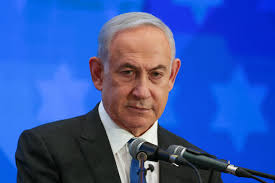Prime Minister Benjamin Netanyahu, from the Knesset rostrum, declared his unwavering resolve to continue military operations in Gaza, despite mounting international criticism. In a speech that underscored his commitment to Israel’s security and his determination to achieve military objectives, Netanyahu rebuffed accusations that his government is not negotiating in good faith for the release of hostages held by Hamas in the Gaza Strip.
A Resolute Leader’s Message
Defiance in the Face of Pressure
“Those who say they are not ready to stand up to the pressure raise the flag of defeat; I won’t raise any such flag, I will keep fighting until the flag of victory is raised,” Netanyahu proclaimed. His words were a clear message that Israel would not capitulate under international pressure and would continue its operations until all goals are met.
Commitment to Military Objectives
“I don’t intend to end the war before every goal has been achieved. If we give in, the massacre will return. If we give in, we will give a huge win to terror, to Iran,” Netanyahu stated, emphasizing the stakes of the conflict and the importance of a decisive victory.
International Condemnation and Domestic Justifications
Global Criticism of the Rafah Offensive
Israel’s offensive in Rafah has drawn significant international condemnation, with many nations and human rights organizations criticizing the military’s tactics and the resultant civilian casualties. Despite this, Netanyahu has maintained that the operations are necessary to neutralize threats posed by Hamas.
Efforts to Minimize Civilian Harm
Netanyahu addressed an incident in which a strike targeting two top Hamas commanders resulted in a blaze that spread through a tent encampment, reportedly killing dozens. He asserted that Israel has made considerable efforts to protect civilians, including evacuating 1 million people from Rafah.
Hostage Negotiations: Accusations and Rebuttals
Allegations of Bad Faith Negotiations
Critics have accused the Israeli government of not engaging earnestly in negotiations for the release of hostages held in Gaza. These accusations suggest that the government’s actions are more focused on military objectives rather than humanitarian considerations.
Netanyahu’s Defense
In response, Netanyahu has vehemently rejected these claims, reiterating that all actions taken are in the best interest of Israeli security and are necessary to ensure the safety and future of the nation. He argues that a strong stance against Hamas is crucial to prevent future attacks and to secure the region.
Humanitarian Impact and Military Strategy
Civilian Evacuations
Netanyahu highlighted the evacuation of 1 million people from Rafah as evidence of Israel’s efforts to minimize civilian casualties. He argued that these actions demonstrate a commitment to humanitarian principles even amidst intense military operations.
Strikes on Hamas Commanders
The targeting of Hamas leadership is presented as a strategic necessity. Netanyahu insists that these operations are critical to dismantling the organizational structure of Hamas and preventing future threats to Israel.
The Broader Conflict Context
Longstanding Tensions
The conflict between Israel and Hamas is deeply rooted in historical and political tensions. Netanyahu’s current strategy is framed within the broader context of ensuring long-term security for Israel and countering what he describes as existential threats.
Iran’s Influence
Netanyahu’s rhetoric often includes references to Iran’s support for Hamas, positioning the conflict within the larger geopolitical struggle against Iranian influence in the region. He argues that a victory against Hamas is also a blow to Iran’s regional ambitions.
Public and Political Reactions
Support Within Israel
Within Israel, Netanyahu’s firm stance has garnered both support and criticism. Supporters view his resolve as necessary for national security, while critics argue that the humanitarian cost is too high and that alternative strategies should be considered.
International Diplomatic Pressure
Internationally, the response has been predominantly critical, with calls for ceasefires and negotiations. Diplomatic pressure continues to mount as global leaders urge Israel to adopt a more measured approach and to prioritize humanitarian concerns.
Prime Minister Benjamin Netanyahu’s address from the Knesset rostrum underscores a defiant stance in the ongoing conflict in Gaza. Despite international condemnation, he remains committed to achieving Israel’s military objectives and ensuring the nation’s security. The situation in Gaza continues to evolve, with significant implications for both regional stability and global diplomatic relations.




